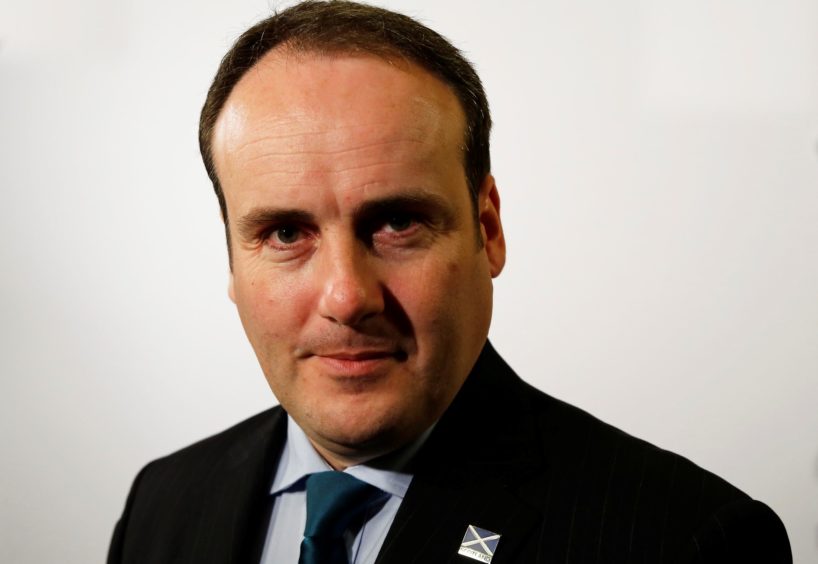
As years go, 2019 was a particularly significant one for Scotland’s energy sector, most notably with the Scottish Government declaring a climate emergency, and outlining our commitment to become a net-zero emissions economy and society by 2045.
Marine energy will have an important part to play in the energy transition, and, in February, we launched Scotland’s £10 million Saltire Tidal Energy Challenge Fund, to support commercial deployment of tidal energy generation to help overcome UK Ministers failing to provide a route to market for the technology. In the first award we provided £3.4 million to help Orbital Marine construct the world’s most powerful tidal turbine, capable of powering more than 1,700 homes per year. We also provided £10 million to the Wave Energy Scotland programme, taking our total support to the wave energy sector to nearly £40 million since 2014.
BEIS statistics for 2018 showed a record 76.3% of Scotland’s electricity demand could be met from renewable sources and installed capacity grew by more than 11% in the year to June 2019 to reach 11.6GW in total.
In March we awarded £13.4 million to low carbon projects as part of a £60 million Infrastructure Transition Programme, set up to support low carbon heating solutions, integrated energy systems and ultra-low emission vehicle infrastructure schemes.
In July, the 588MW Beatrice offshore windfarm opened and we continue to work to make Scotland an even more attractive place to invest in offshore wind energy developments.
The decommissioning of North Sea infrastructure is an integral part of Scotland’s Energy Strategy, which recognises that the process can provide significant economic opportunities for the industry’s supply chain. In July, I announced the award of a further £4 million to help maximise the economic benefits to Scotland from that process, on top of £10 million previously committed.
In September we announced £30 million to create projects that will use innovative and low carbon ways of heating our buildings, given that heating accounts for more than 50% of our energy consumption.
We also committed to introducing a Heat Networks Bill in 2020 that will help attract investment in this sector which has clear potential to tackle fuel poverty and deliver lower emissions.
We also announced our intention to require all new-build homes consented from 2024 to use renewable or low-carbon heat.
And in October we announced that the extraction of unconventional oil and gas would not be supported through Scotland’s planning framework, due to its incompatibility with our environmental ambitions.
Before Christmas, we published a new Sectoral Marine Plan covering offshore wind energy opportunities that will inform the Crown Estate Scotland’s forthcoming ScotWind leasing round, alongside a draft Offshore Wind Policy Statement. Together, these outline our ambition for offshore wind, both fixed foundation and floating, and the steps we will take to secure maximum development and economic benefit from this sector.
Looking ahead, our next Energy Statement will set out the progress which renewable and low carbon energy generation are helping us make towards our net zero ambitions. We are also looking at ways to assess the potential contributions across the electricity and wider energy system which might be required to help deliver a net zero future.
I’m optimistic about the role that Carbon Capture Usage and Storage (CCUS) will play in Scotland, which can reduce emissions of carbon dioxide at source to prevent it being vented to the atmosphere and escalating climate change. It can provide a diversification opportunity for the oil and gas supply chain, is the only option for deep emissions reductions for many energy-intensive and process industries and, when used with sustainable biomass, it can provide “negative emissions”. It also has a role in producing clean hydrogen, alongside green hydrogen derived from renewable energy.
Last month the Scottish Government signed a charter with a group of North Sea Oil representatives to create the North East Carbon Capture, Usage and Storage Alliance (Neccus), which will work to drive forward Scotland’s decarbonisation agenda by enabling the capture of carbon emissions by oil and gas industry majors at the St Fergus Gas Terminal, near Peterhead.
In March we published a document which outlines our vision for Scotland’s gas and electricity networks up to 2030. The Networks Vision Statement proposed to explore further opportunities for the generation of low-carbon hydrogen, and the use of gas networks for its distribution and storage. This will allow government to determine whether low-carbon gasses like Hydrogen via our gas networks could be a deliverable option for some of our heat and transport fuel needs in Scotland’s net zero future –our Hydrogen Assessment project will report prior to Summer 2020.
On a more disappointing note, the outcome of the UK Government’s Contract for Difference (CfD) process in September raised serious questions for delivering transmission links from Scotland’s islands in the near future. However, our support for these links, which will be transformational for the islands’ economies, remains unwavering, and we will continue to work hard with the developers, network owner and UK-wide regulator, Ofgem, to deliver a positive outcome.
I have continued to call on the UK Government to amend the Contract for Difference auction process, currently solely awarded on price, to better reflect value added to the supply chain and wider economy when determining the developers that are awarded contracts, and to ensure there is improved use of the Scottish and UK supply chains.
All of this forms part of a wider review of targets and policies across each of the key sectors of the economy to inform our updated Climate Change Plan and we will thereafter update our Energy Strategy to reflect the scale of ambition set out in the Plan – outlining how, by evolving how we generate and use energy, we can boost Scotland’s economy and create a range of new models for developing local and community energy, while also tackling fuel poverty.
Recommended for you
